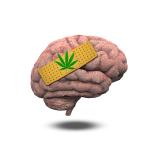Once again, the echo chamber nature of press releases serves to promote misleading science and health clickbait. This time it is with headlines like “Tobacco, but not pot, boosts early stroke risk.”
ischemic stroke
High blood pressure, or hypertension (HTN), is one of the leading risk factors for stroke, and there ar
Two new multicenter studies assessing hundreds of stroke patients clearly show that cryptogenic stroke
When dealing with ischemic stroke (the ki



